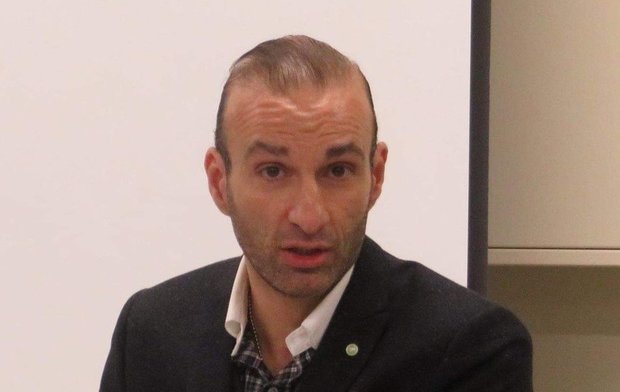Professor in Global Thought and Comparative Philosophies and Chair of the Centre for Iranian Studies at the London Middle East Institute, also adds that “This is a rather ludicrous and insulting demand to everyone who believes in democratic legitimacy and the sovereignty of Venezuelans.”
He says that “even the Trump administration, which has no real conception of world politics, understands that there is no military option in Venezuela or anywhere else for that matter.”
Here is the full text of the interview:
On January 30, Guido, the opposition leader and head of the Venezuelan congressional party, with US support, questioned Maduro's legitimacy and introduced himself as the president of this Latin American state. What are the roots of this crisis and what is the role of the US in it?
Undoubtedly, there are serious socio-economic problems in Venezuela and the government of Nicolas Maduro has proven to be too passive in resolving some of these problems. Venezuelans who were prospering only a decade ago were suddenly forced to migrate all over Latin America for work, as large numbers arrived in Peru for instance, one of the countries that initially welcomed them. But problems such as these are common to governments all over the world. For instance, simply because the pro-Brexit political elites in Britain are seriously damaging the economy of the country in their inept and illiterate efforts to split from the European Union, it should not mean that country X should call for the downfall of the government of Theresa May. The Venezuelan case is exactly comparable to this example. Here we have a legitimate government voted into power by the Venezuelan people and the supposed champions of democracy such as the United States, but also the so called liberal government of Justin Trudeau in Canada and the European Union call for “re-elections” and/or for Maduro to step down. This is a rather ludicrous and insulting demand to everyone who believes in democratic legitimacy and the sovereignty of Venezuelans. It is ironic to most Latin Americans that I talk to, that Donald Trump who insulted them and who wants to keep Mexicans out of the country by building a wall, is now pretending to care about the fate of a continent that brims with political culture and awareness.
The US agenda is clear and it is distinctly neo-imperial. Venezuela under the late Hugo Chavez became the economic engine of the Bolivarian revolution in Latin America which achieved and sustained independence from the bad old days of western interference - the period when successive US governments propped up dictatorial regimes under the pretext of a Cold War rationale that was meant to contain “communism”. The first wave was the Cuban revolution, the second the Chavez era. The changes are irreversible and Latin America today is struggling to make them last against the odds.
Russia supported the Mexican and Uruguayan initiative to help resolve the political crisis in Venezuela and the direct dialogue between the Caracas government and the opposition. What is the official position of the Venezuelan government about this crisis? Do you support direct dialogue with the opposition?
And here we have exactly the difference to the past. The United States and its allies on this issue can’t force anything within a world order that is increasingly multipolar. The military option is impossible because Russia already indicated that it would react. Even the Trump administration, which has no real conception of world politics, understands that there is no military option in Venezuela or anywhere else for that matter. The global context of the crisis in Venezuela indicates the fissures of today’s world politics. There is no UNSC option because China and Russia would veto any anti-Maduro resolution. On the other side, Turkey, the United States’ NATO ally, also supports the legitimacy of the Maduro government. In addition, the European Union has had a rather more nuanced approach to the crisis than the United States and Canada. But their repeated insistence on an ultimatum is disappointing, self-defeating and untenable in terms of international norms of appropriate behavior. The reason why President Maduro is still in power is exactly because of this splintered global context which is distinctly multi-polar – several powers in the international system are balancing each other out which gives Venezuela options to choose its allies. Russia and China will find themselves on the right side of history in Latin America if they stay the course as the battle between truth and falsehood will always be decided in favor of the former – sooner or later the truth prevails despite of the Orwellian nature of the Trump Presidency which can only be characterized as the politics of misinformation and short-sighted, half-literate propaganda.
Successive US governments have proven that they demand subservience. I am in no doubt that the forces behind Guido are exactly that – subservient pawns who do not act in the name of national independence. In terms of political acumen, he made a big mistake to be seen as such, as the deep political culture in Latin America, rich and educated as it is, does not lend itself to subservience to anyone. The Hollywood actor Danny Glover was absolutely right to mention this in a recent interview for The Real News Network in the United States.
How do you assess the position of the Islamic Republic of Iran regarding the crisis in Venezuela?
The struggle in Latin America is probably the most crucial one for the future of world politics. This is an area of the world that has been at the behest of foreign interventions for decades. Yet with the Cuban revolution, and then with the Chavez era there was a concerted effort to rid the people of this region from subservience to foreign powers once and for all. There are, then, many commonalities between the history of Latin America and West Asia/North Africa in terms of western imperialism/colonialism, post-colonial independence, revolution etc. Iran needs to base its foreign policy on the basis of this deeper, cultural appreciation. There is more to be done in terms of liaising with potential partners in support of President Maduro, certainly with Turkey, but also with Latin American countries that are sympathetic, such as Cuba, Bolivia and Nicaragua. Iran has spent a lot of diplomatic capital to build long-lasting relations with these countries and they could be turned into a rather more strategic dialogue especially at this time of crisis when the battle lines are clear. Turning a threat into an opportunity could be the formula for a wise diplomatic initiative exactly now.
Interview by: Javad Heirannia
MNA/TT


























Your Comment